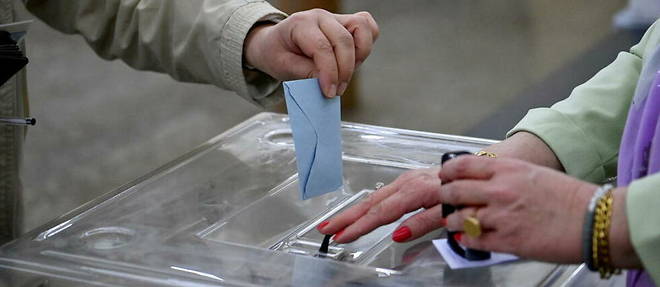French people in overseas territories and abroad began voting on Saturday, June 18, for the second round of legislative elections, which will say whether the presidential coalition remains ahead of that of the left, whether the majority is absolute or relative and if the RN gets a group.
Saint-Pierre-et-Miquelon was the first overseas territory to vote, at noon Paris time. Guyana, the West Indies followed – Martinique, Guadeloupe, Saint-Martin and Saint-Barthélemy – and also some French people from abroad, notably those from North America and those from South America. In the Pacific, voters vote on Sunday, but given the time difference, they will start heading to the polls on Saturday evening Paris time.
Thus on Saturday, at 10 p.m. in Paris, the polling stations will open in Polynesia and in Wallis and Futuna. And at 11 p.m. in Paris, it will be Noumea’s turn, where it will be 8 a.m. on Sunday. In the Indian Ocean, where the time difference is less, voters will vote well on Sunday. At 6 a.m. in Paris, the polling stations will open in Reunion, followed at 7 a.m. by those in Mayotte. The rest of French voters will vote on Sunday.
The ballot will determine which coalition, that of the incumbent presidential majority Together! or that of the left Nupes, will be in pole position, even if the outgoing majority remains favorite, according to polling institutes. The question is above all whether this majority will be absolute (289 deputies) or relative, determining Emmanuel Macron’s ability to implement his reforms.
The voters will also say if the Republicans, who collapsed in the presidential election, are still able to weigh in the Assembly, when they are given third place in the voting intentions. Finally, the ballot will also say whether the National Rally, which has reached the second round of the presidential election with Marine Le Pen, obtains a group, i.e. at least 15 deputies, which gives more means and speaking time.
The future of several ministers is also at stake in these elections. Because in the event of failure in the legislative elections, the candidate minister will have to leave the government, as the executive reminded us before the ballot. If the Prime Minister, Élisabeth Borne, does not seem threatened in Calvados, the Minister for Ecological Transition, Amélie de Montchalin, is in great danger in Essonne, as is the boss of En Marche! and Minister of the Public Service, Stanislas Guerini, or even the Minister Delegate for Europe, Clément Beaune, both in Paris. Be that as it may, a reshuffle is expected after the election, if only for the posts of state secretaries, which have not yet been filled.
Back from Ukraine, President Emmanuel Macron pleaded for a “truly European France”, after accusing his Nupes opponents of wanting to leave the EU, and calling for a “solid majority”. Elisabeth Borne castigated a Nupes project with “very negative consequences” on the economy, as well as the “lies” of Jean-Luc Mélenchon. The leader of Nupes also asked for a “net” result in his favor, at the risk that “it will be a mess”.
Marine Le Pen for her part called on her voters to make Emmanuel Macron a “minority president”, while castigating “an extreme left which is the most sectarian, the most violent”. determinants. Less than one in two voters had moved in the first round and the trend should be confirmed on Sunday.


















